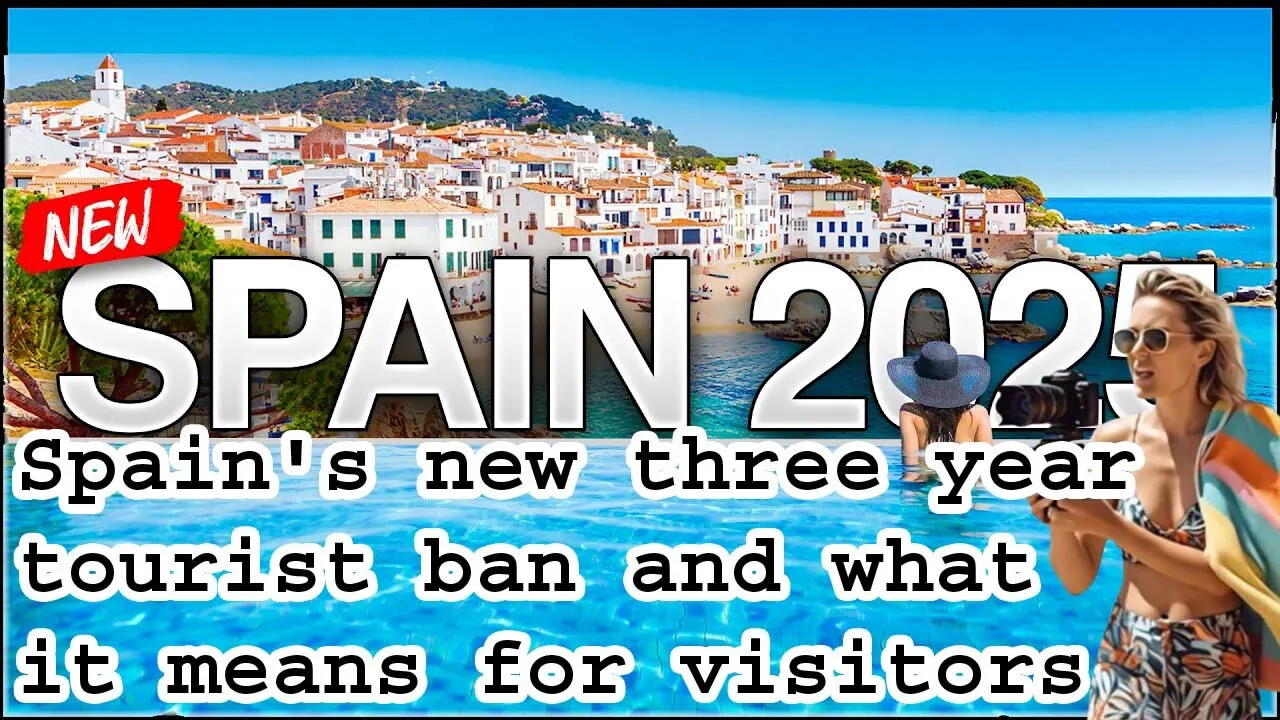Spain’s Shocking New Tourist Ban: What You Need to Know Before You Go!
Spain, a beloved destination for millions of travelers, is taking significant steps to address the challenges posed by overtourism. With its stunning landscapes, rich history, and vibrant culture, Spain has long attracted visitors from around the globe. However, the increasing number of tourists has led to rising accommodation prices, strained local resources, and growing resentment among residents. In response, the Spanish government has introduced a three-year ban on new holiday rentals in specific areas, particularly targeting the Canary Islands. This article will explore the implications of this ban, what it means for travelers, and how it reflects a broader trend towards sustainable tourism.
The decision to implement a ban on new holiday rentals is rooted in the desire to promote sustainable tourism practices. Local communities have voiced concerns about the negative impacts of excessive tourist numbers, including inflated housing prices and the erosion of local culture. The legislation aims to ensure that tourism benefits both visitors and residents, fostering a more balanced approach to travel.
Key Areas Affected by the Ban
-
Canary Islands: The new regulations primarily focus on popular tourist destinations, such as the Canary Islands, where the ban on new holiday rentals will be in effect for three years. This initiative aims to alleviate the pressure on local resources and promote responsible tourism.
-
Barcelona and Mallorca: These iconic locations are expected to see new restrictions aimed at managing visitor flow and protecting local environments. The legislation is part of a broader effort by the Spanish government to address the adverse effects of tourism on communities and the environment.
-
Madrid and Seville: In addition to the Canary Islands, cities like Madrid and Seville have already implemented measures to curb the rise of short-term rentals. In Madrid, a ban on new licenses for holiday lets is set to last until 2025, while Seville has restricted the number of tourist apartments in residential areas.
As travelers plan their trips, they must be aware of the potential changes in accommodation availability and pricing due to these new regulations. The ban has sparked discussions and protests among locals, highlighting the tension between tourism and community well-being. Residents have expressed frustration over the economic inequality exacerbated by tourism, as many feel that the wealth generated by visitors is not equitably distributed.
What This Means for Tourists
Travelers planning to visit Spain should stay informed about specific areas affected by the ban and any additional regulations that may be introduced. The initiative reflects a growing trend in global tourism towards more responsible and sustainable travel practices. Tourists are encouraged to explore less-visited regions of Spain, such as Valencia, Bilbao, and Santiago de Compostela, which offer rich cultural experiences without the crowds.
Moreover, the new regulations may include increased taxes on tourist accommodations and activities, aimed at generating revenue for local infrastructure improvements. As the Spanish government considers measures to limit the number of cruise ships and flights entering popular tourist areas, it is crucial for visitors to recognize the environmental impact of their visits and engage in practices that support local economies and communities.
Public Sentiment and Safety Concerns
The anti-tourism sentiment has been fueled by incidents where tourists have faced harassment during protests, raising concerns about visitor safety. In cities like Barcelona and Mallorca, locals have expressed their frustration through demonstrations, drawing attention to the need for a more equitable distribution of tourism’s economic benefits. As tensions rise, it is essential for travelers to approach their visits with sensitivity and respect for local customs.
In conclusion, Spain’s new tourist ban represents a significant shift in how the country approaches tourism. By prioritizing the needs of local communities and the environment, the Spanish government aims to create a more sustainable and equitable tourism model. As travelers, it is our responsibility to adapt to these changes and support initiatives that promote responsible travel. Staying informed and being mindful of our impact can help ensure that Spain remains a vibrant and welcoming destination for generations to come.
Ultimately, this situation reflects a broader global conversation about the sustainability of tourism and the need for balance between economic benefits and community welfare. As travelers, we have the power to make choices that support local economies and contribute positively to the places we visit.






Leave a Comment